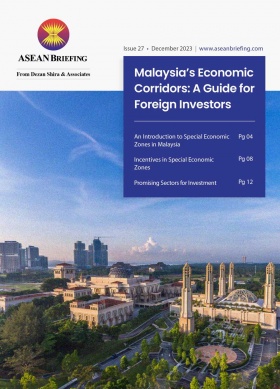Coal Production Goals vs. Environmental Responsibility: Indonesia’s Dilemma in 2024
With Indonesia’s mining minister aiming for a coal production of 710 million tonnes in 2024, it’s essential to explore the dynamics of the nation’s coal industry. This exploration unveils a delicate balance between economic growth and emission reduction.
On January 15, 2023, Indonesia’s Mineral Resources Minister, Arifin Tasrif, set forth an ambitious vision—to produce 710 million tons of coal in 2024. This ambitious target follows a remarkable performance in the previous year, fueled by a rebound in demand.
Looking ahead, however, the Indonesian government has also outlined a strategic plan to gradually reduce coal output, aiming for 250 million metric tons annually by 2060. This significant shift aligns with Indonesia’s overarching goal of achieving net-zero emissions by the same year.
As the government navigates this transformative journey, it strives to balance its reliance on coal for electricity with commitments to halt new coal plant commissioning, marking a pivotal phase in Indonesia’s evolving energy landscape.
Indonesia’s coal industry overview
Indonesia, renowned as a global coal powerhouse, has maintained its stature as the world’s third-largest coal producer, with a pivotal role in the international coal market. The sector’s resilience and strategic significance are underscored by a recent surge in production, reaching an unprecedented 775 million tonnes in 2023—a notable recovery-driven increase from the previous year’s output of 687 million tonnes.
In tandem with this robust production, Indonesia’s coal exports surged to approximately 518 million tonnes in the same year, marking an impressive 11 percent growth from 2022. The nation’s commitment to sustaining its position as a leading thermal coal exporter was evident earlier in the year when an ambitious export target of 457.3 million tonnes was set, signaling Indonesia’s ongoing influence in the global energy landscape.
However, against this backdrop, Indonesia faces the imperative of aligning its coal industry with contemporary environmental and global energy trends.
Indonesia’s commitment to emission reduction
Indonesia has intensified efforts to shift towards renewable energy and address climate change. Despite being an archipelagic nation highly susceptible to climate change impacts, Indonesia, as a developing country, relies on fossil fuels for economic growth.
With a commitment to achieving carbon neutrality by 2060, Indonesia is actively formulating a Long-Term Strategy for Low Carbon and Climate Resilience, extending to 2050.
Aligning with these objectives, in 2021 the Indonesian government announced plans to retire coal-fired power plants permanently. In 2022, it went further by pledging a substantial 32 percent reduction in carbon emissions by 2030 – even surpassing its commitment under the Paris Agreement. The Presidential Decree on Renewable Energy specifically signals support for renewables and outlines plans for the early retirement of certain coal plants.
The country has also secured funding commitments like the Just Energy Transition Partnership (JETP) to facilitate these climate goals. The JETP, announced during the 2022 G20 Summit, involves G7 countries, Denmark, and Norway, channeling US$20 billion to support Indonesia’s transition to clean energy and coal retirement.
All these initiatives highlight Indonesia’s determined efforts to balance economic growth with environmental sustainability, marking a pivotal shift towards a cleaner and more resilient energy future.
Balancing emission reduction goals and economic realities
Despite Indonesia’s commitment to emission reduction, the country heavily relies on coal, aligning with the energy strategies of other developing economies. As the leading global coal exporter of electricity, Indonesia faces the challenge of having an excess of coal power, particularly in regions like Java, due to inaccurate predictions of rising power demand over the past decade. Resolving this surplus presents economic challenges.
Critics express concerns about the pace of Indonesia’s transition from coal, highlighting a perceived loophole that could potentially allow the construction of new coal plants. They question the rationale behind incentivizing the closure of some coal facilities while permitting the development of others. Notably, Indonesia has committed to discontinuing new coal plant projects, but an exemption exists for plants in the pipeline or linked to nationally strategic initiatives.
The overseeing office emphasizes that new coal plants tied to strategic projects must cease operations by 2050, accompanied by a 35 percent emissions reduction within a decade, achievable through technology or carbon offsets. It reflects Indonesia’s delicate balance, navigating its commitment to environmental goals while considering economic necessities. This nuanced approach is crucial for investors and businesses seeking insights into Indonesia’s market dynamics, showcasing the nation’s commitment to sustainability, yet within the framework of its economic imperatives.
Looking ahead
Indonesia’s ambitious coal production targets for 2024, seemingly at odds with global sustainability narratives, reveal a strategic interconnectedness. The coal industry, deeply rooted in the nation’s power generation and industrial processes, is crucial in facilitating Indonesia’s pursuit of becoming a global powerhouse for electric vehicles (EVs).
Reportedly, Indonesia’s industrial parks, particularly those thriving on nickel and aluminum processing in Sulawesi and Halmahera, are heavily reliant on coal, consuming a significant 15 percent of the country’s coal power output. This dependence on coal extends beyond energy production, permeating key sectors that are strategically linked to Indonesia’s economic ambitions, posing intricate challenges in the pursuit of a sustainable future.Thus, it is even more noteworthy that Indonesia, despite its current heavy reliance on coal, is actively engaged in transitioning toward renewable energy sources. This dual commitment to industrial growth and environmental sustainability exemplifies the intricate balance Indonesia seeks to strike on the world stage. Navigating this complex terrain will be pivotal as Indonesia endeavors to emerge as a global leader in both the EV industry and the broader push for cleaner, greener energy alternatives.
About Us
ASEAN Briefing is produced by Dezan Shira & Associates. The firm assists foreign investors throughout Asia and maintains offices throughout ASEAN, including in Singapore, Hanoi, Ho Chi Minh City, and Da Nang in Vietnam, in addition to Jakarta, in Indonesia. We also have partner firms in Malaysia, the Philippines, and Thailand as well as our practices in China and India. Please contact us at asean@dezshira.com or visit our website at www.dezshira.com.
- Previous Article Singapore and Malaysia Plan Joint Special Economic Zone in Johor State
- Next Article Malaysia Imposes Tax on the Import of Low Value Goods








